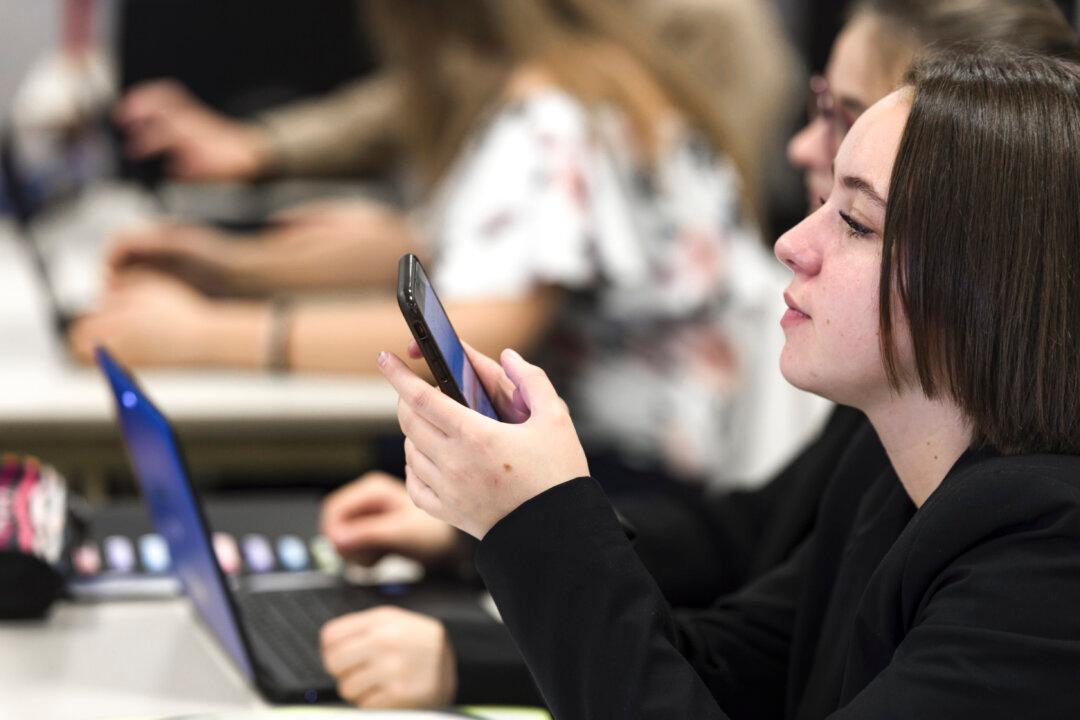A recent report by the Parents Television and Media Council outlined concerns related to the use of smartphones by students in schools and their associated mental health challenges, as well as the steps some states are taking to mitigate the issue.
The report released late last month underscores the growing consensus among educators, parents, and public health experts about the detrimental effects of unregulated smartphone use among children and teens, and raises concerns about impacts on academic performance, citing educators who have increasingly observed disruptions in the classroom due to phone use.





